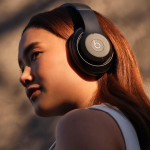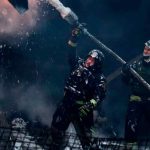Victoria has recorded 8149 new Covid cases and 18 deaths on Wednesday.There are 397 people in hospital in Victoria with 68 in intensive care and 13 on ventilators.On Wednesday morning the state government announced that all elective surgery across Victorian public and private hospitals can resume by the end of the month.With the Omicron wave continuing to stabilise, Health Minister Martin Foley on Wednesday morning confirmed he had signed off on a plan that “balances the health system response and workforce pressures with ensuring Victorians can access important surgery”. The rolling seven-day average of Covid-19 related hospitalisations is 457 patients, decreasing from a peak of more than 1200 patients in mid-January. The number of staff unavailable due to Covid-19 has also dropped by about two-thirds, now about 1400 people.From next Monday public hospitals in metropolitan Melbourne will be able to perform Category 2 surgery.Mr Foley will also consider further changes to allow all surgery to resume from February 28, subject to supporting streaming sites, with a focus on treating Category 1 and 2 patients within clinically recommended times. Mr Foley said each hospital would individually assess their own capacity based on staff needs and Covid demand. Private hospitals can also increase their elective surgery activity, as long as they can still provide support for public hospitals with Covid cases. From next Monday, metropolitan private facilities will be able to undertake up to 75 per cent of any elective surgery activity — an increase from 50 per cent. The cap for private hospitals in regional Victoria will increase — from 75 per cent now — to 100 per cent by Monday February 21. Mr Foley said the hospital system was now in a “strong position” to remove remaining restrictions. “We understand that this has been a difficult time for many people waiting for surgery and we thank them for their patience while we managed the peak of the Omicron variant,” he said.Premier Daniel Andrews on Wednesday said he wanted “as much surgery as possible” while urging Victorians to get vaccinated.Mr Andrews revealed that he is set to make “some really important announcements” about Covid rules and “normalising” the virus.Meanwhile, opposition health spokeswoman Georgie Crozier said the announcement proved to be “more spin over action from the Andrews Labor government”. “Elective surgery should never have been cancelled. It should be restarted today, in full, not potentially by the end of the month,” Ms Crozier said.“This government has no plan to cut record waiting lists or fix the healthcare crisis it has created.”VICTORIANS QUIT CHECKING IN Victorians checked in with QR codes on just 19 million occasions in the past week, with the state government locked in talks about finally dropping its mandate in line with other states.New South Wales has committed to scaling back the check-in requirement from February 28, but leading epidemiologists have called for the codes to be immediately scrapped in both states, dubbing them an “unnecessary burden”.Queensland has also eased QR code use, only requiring patrons to check in at hospitality venues. Premier Daniel Andrews on Sunday confirmed the use of QR codes in Victoria was under review, with senior government sources revealing a phase-out announcement could be made in the next week.It is understood cabinet has not yet been briefed on potential changes to restrictions, but this may come later in the week. New Department of Health data has revealed lower usage of the system, with just 19 million check ins over the past week.The state government refused to provide monthly data breakdowns but confirmed there had been 144 million check ins since January 1 this year. On February 8, there were 125 million scans. In July last year, the government boasted that Victorians “have embraced the QR code system”, with an average of 4.6 million daily check ins – more than 100 million check-ins for the month of June. Deputy Liberal leader David Southwick said: “Victoria will never recover and rebuild while 2020 and 2021 style rules continue to be imposed where there is simply no benefit.”University of Melbourne public health physician Nathan Grills said QR codes are no longer needed.“If you walk into the shops now you can see people aren’t using QR codes. It’s an unnecessary burden,” Prof Grills said.“It’s also not wise to impose restrictions on the community – why should they waste their time doing something that doesn’t achieve anything.”Deakin University epidemiology chair Catherine Bennett added: “I don’t see people using them very often. Unless we’re using an automated system to warn people of exposure, there’s no point in doing it.”Australian National University medical school professor of infectious diseases Peter Collignon said people needed to be convinced something “useful” would be done with their data.“Otherwise they won’t go to the trouble of checking in,” he said.FREE KIDS FROM MASKSA prominent epidemiologist has backed calls by high-profile infectious disease expert Nick Coatsworth to scrap mask mandates for schoolchildren. The former deputy chief medical officer posted on social media on Tuesday that he believed the “tide has turned on masks”.“People recognise they had a place at a time of uncertainty, but are appropriately reassessing their value, especially in schools,” Dr Coatsworth said. “It is a good time to re-evaluate primary and secondary school mask policy in all Australian jurisdictions.”In Victoria, masks are required for students in year 3 and above, while in NSW they are mandatory in high schools and strongly recommended for primary school students. Peter Collignon, professor of infectious diseases at Australian National University Medical School, said masks in school, particularly primary schools, posed “a real issue”. “Schools in Victoria and NSW have been open for two weeks now and we haven’t seen a huge spike in case numbers,” he said. “Children, even if they do get Covid-19, are at a very low risk of serious illness. In the same way that 30-year-olds are much less at risk than 70-year-olds, eight-year-olds are at less risk than 15-year-olds.” Professor Collignon said mask-wearing presented a series of challenges for children, including compliance issues. “Wearing a mask, particularly for children, is not easy,” he said.“For all the extra pain, I don’t think it makes a huge advantage in limiting the spread of community transmission.“There’s a heap of negatives, and while masks do make some difference, relatively, it’s not likely to be huge. While you may get some benefit, the benefit is pretty small compared to the wider implications.” Burnet Institute’s Michael Toole said daily cases needed to decline substantially and vaccinations need to increase before mask restrictions should be lifted in children. “While Omicron tends to be milder in children, that’s not always the case,” Professor Toole said.“Victoria’s figures are also still high, and they’re not coming down very fast.“It’s going to be weeks, if not months, until five to 11-year-olds are fully vaccinated, and I don’t think we should do anything to increase the risk of the virus spreading among children. Health Minister Martin Foley said conversations with key stakeholders about restrictions were ongoing. “We know that masks work. They’re a low cost and high success rate intervention,” he said.
Powered by WPeMatico






